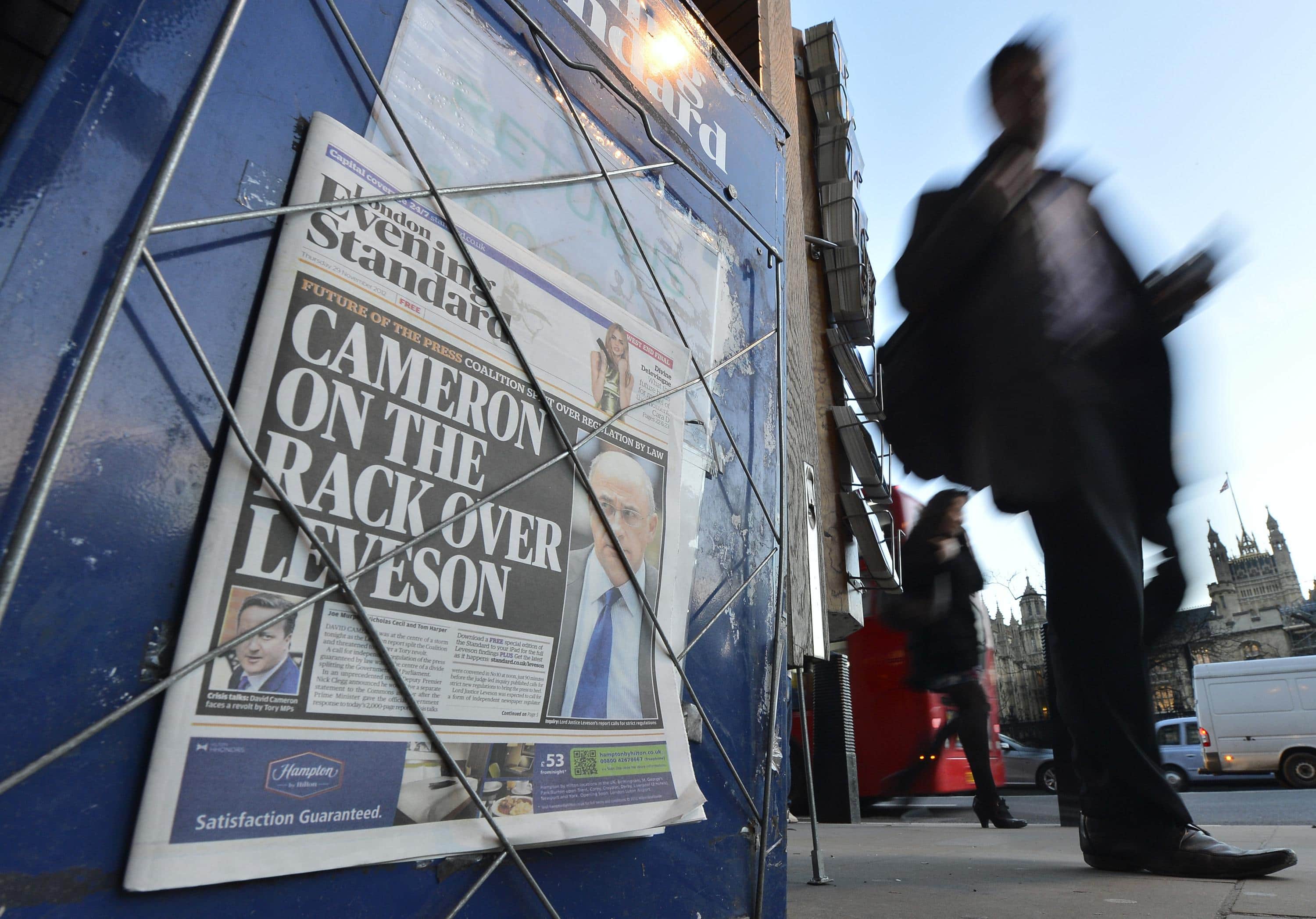Diverging opinions have emerged both among British politicians and within the IFEX community following the release of Lord Justice Leveson's report into media ethics in the UK.
Toronto, 3 December 2012 – The release of a highly-anticipated report on media ethics in the wake of the phone-hacking scandal that rocked Britain last summer has been met with diverse reactions from both the government and the free expression community. Among the more controversial recommendations in Lord Justice Brian Leveson’s 1,987-page report, released on 29 November, was the proposed creation of a new independent regulatory body backed by legislation, a proposal that has split the coalition and parliamentarians. Prime Minister David Cameron warned on Friday that the legislation required to underpin the regulatory body could infringe on free speech and a free press.
ARTICLE 19 immediately welcomed Leveson’s recognition of effective self-regulation as the best way to ensure a truly independent and diverse press, stating that the “statutory underpinning of self-regulation proposed by his report does not contradict international standards on press freedom.” Index on Censorship on the other hand opposes the proposed statutory regulation and has called for “serious, considered debate” of the recommendations. The International Press Institute also said it opposed enshrining the new regulation system in law, and the Committee to Protect Journalists (CPJ) expressed deep concern, saying that “adopting statutory regulation would undermine press freedom in the UK and give legitimacy to governments around the world that routinely silence journalists through such controls.”
In its analysis, ARTICLE 19 noted that the United Kingdom’s Press Complaints Commission has been woefully inadequate and has failed to ensure press accountability. The organisation characterised the model proposed by Leveson as “new and untested”, noting that it could offer a new vision for press accountability in the 21st century. Within this new model, however, ARTICLE 19 warned that the UK government must absolutely protect press independence and ensure that statutes on self-regulation are not used to undermine freedom and diversity. Reporters Without Borders (RSF) echoed this sentiment, stating that if the United Kingdom chooses this system, utmost care must be taken to prevent potential abuse that could lead to state control of the media.
In contrast, Index on Censorship views statutory underpinning of an “independent” and “voluntary” regulator as a contradiction in terms, noting that “any law which sets out the criteria that the press must meet, by definition introduces some government or political control of the media (. . . ) Even ‘light’ statutory regulation could easily be revisited, toughened and potentially abused once the principle of no government control of the press is breached.”
Index on Censorship suggests, in particular, that the statutory-voluntary approach for a new press regulator proposed in the Leveson report incorporates a catch-22 and is set up to fail . While the paragraphs describing the regulator say membership is voluntary, paragraph 23 of the executive summary states that a “recognition body” set up to assess whether certain criteria are met by the press regulator should only recognise and certify the regulator as “sufficiently effective” if it covers “all significant news publishers”. This means the proposed system can only work – and be recognised in the way the statute would demand – if none of the major news outlets opts out, says Index on Censorship. If they do exercise this right, then the regulator will fail to meet the required standards.
Index on Censorship believes that existing laws, combined with a stronger independent regulator – set up without any statute or parliamentary vote – can provide the framework for press freedom to be upheld, in order to ensure “higher media standards, better governance and greater protection for individuals from criminal, inappropriate and unjustified media behaviour.”
Leveson’s proposal for an effective, fast track arbitration process is one that both Index on Censorship and the International Press Institute agree with. Index on Censorship notes that such a process could benefit both complainants and publishers by ensuring that complaints are dealt with swiftly and fairly, without great costs. A stronger standards arm, fines, and more independent figures on the regulator’s board could transform the behaviour of those elements of the press targeted by the Leveson report, says the organisation.
Weighing in on the discussion, the International Federation of Journalists (IFJ) specifically noted the inclusion in the report of proposals put forward by the National Union of Journalists for the UK and Ireland (NUJ) to give journalists a conscience clause in their contracts, which would allow them to refuse unethical work. IFJ President and NUJ member Jim Boumelha welcomed the backing of the conscience clause, saying, “The NUJ’s evidence to the inquiry made clear the enormous pressures facing many journalists. In too many cases journalists face the choice of either undertaking work with which they are not comfortable or face the prospect of losing their job (. . . ) [Journalists] need to be given the confidence to abide by their union’s code of conduct and to say no without fear of disciplinary procedures.”
In summary, RSF notes, “Now that the report is published, it is time for dialogue to begin. Journalists and free speech campaigners must be at the heart of the consultation process. No system of media regulation can be effective without the consent of those who work in the sector.”



